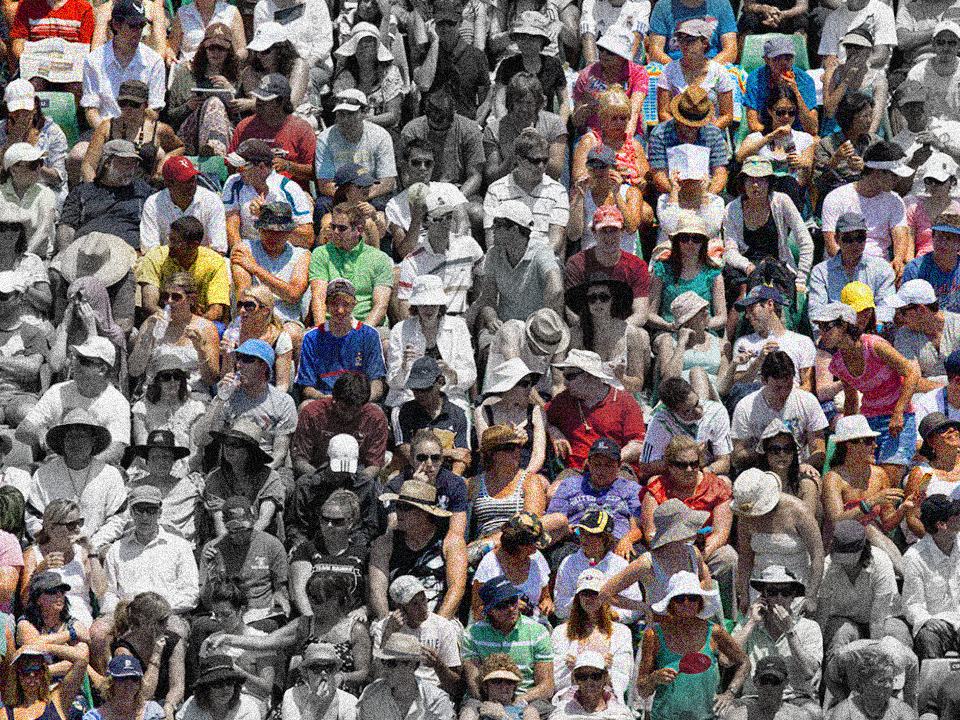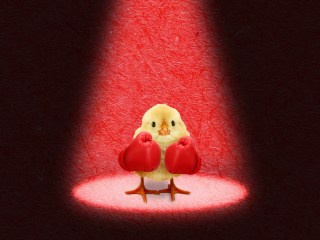Here’s Why You Might Feel Lonely Even When You’re Not Alone
And how to start overcoming it.
Have you ever felt overwhelmingly alone even when you were physically surrounded by people? Maybe you were standing in a crowded party, in a conference room full of coworkers, or just walking through a city teeming with people and you suddenly felt just so…lonely. Turns out, you’re very much not alone in feeling that way.
In fact, a recent report out of Harvard found that 36% of American adults feel serious loneliness “frequently” or “almost all of the time.” (And that number was even higher among young people and mothers with kiddos.) And we all know that the pandemic wreaked havoc on us feeling and physically being close to others. So, yeah, loneliness is a totally normal human emotion, and so is feeling it even when your socializing levels are off the charts.
Why are we like this?
Even if you're a self-proclaimed introvert who would rather make small talk at the watercooler than admit to loneliness, it's still natural to yearn for some human connection. Being social is good for our mental health, but there are so many things that make us feel like we’re living on our own island, disconnected from others.
Some of the biggest reasons you might feel this way include lacking a solid support system or being in a different chapter of your life than your loved ones. For instance, maybe you have tons of friends but you feel like you don’t have anyone you can really rely on in a crisis. Or maybe your close circle is all coupled up with kids and your life looks nothing like that right now.
You might also have trouble relating to others for loads of reasons, like identity differences (think: political, ideological, demographic, etc.), different interests, or because you feel like you can’t be fully vulnerable or yourself around your crew, says licensed therapist Minaa B., LMSW. Struggling with major life changes (even positive ones like entrepreneurship and traveling a ton) and our overall health can also lead to feeling lonely, clinical psychologist Miriam Kirmayer, PhD, adds. All of this can rock your world and make you feel like you’re emotionally isolated and withdrawn from others—even if you’re not physically alone.
How can you feel more connected?
Listen, we aren’t going to suggest you run out and make friends with the next rando with a billion red flags that you meet. That’s the exact opposite of what you need, actually, Dr. Kirmayer advises. Still, there are a few steps you could take to work on those lonely feels, and it starts with checking in with yourself.
First, you’ll want to try to acknowledge that you feel lonely without dunking on yourself for feeling that way. Don’t stress about what you’re doing wrong (answer: probably nothing) and why you think you might be the only one who feels this way (answer: you’re not).
Then, when you sit with those emotions, try to figure out what would fill you up. Do you wish you felt more seen for who you are? Do you want to have more meaningful convos with those already around you? Do you want more friends?
There’s no right or wrong answer here, so you have to be honest with yourself and figure out where your bar for social connection is. If you’re not meeting your personal needs, then use that lonely feeling as a compass to find out where you need to go from here, Dr. Kirmayer advises. “We really want to be intentional about who we are reaching out to and who we're spending our time with,” she says, adding that “it really is the quality of our connections and relationships that helps us to meet our need for connection and reduce those feelings of loneliness, as opposed to just being surrounded by people.”
If you want to focus on strengthening the connections you have now, start out by trying to share more about yourself and the parts of you that you might keep tucked away. Sometimes, it might help to prep your friends by letting them know what you need from them so you can feel like you belong. Try saying, “Here's a part of my life that I really wanna share with you, and it's been difficult for me to open up about that,” Dr. Kirmayer suggests. You could also say, “I don't always feel like we're in the right space to connect over , and would really be helpful.” Keep in mind that this lonely feeling isn’t always because our friends are oblivious, and it can be empowering to take some responsibility or straight-up ask for what you need more of in your friendships.
Now, if your current circle is just not hitting and you really do need some new friends, prioritize finding people with similar interests or backgrounds. I know, I know. How, right? Well, that means being assertive and finding new ways to be social, Minaa B. says. Sometimes we have to step out of our comfort zones in order to vanquish loneliness.
But, let’s be real, starting a convo with someone in public can be scary as hell, so remember there are lots of apps and online communities that you can get plugged into. For starters, there’s Meetup, TikTok and Instagram groups of like-minded people in your city, and Bumble BFF (beware of the MLM peeps). Dr. Kirmayer suggests checking out Hey! VINA, Peanut for new moms, and KINND. And even though Facebook feels like it’s on its last legs, there are a ton of groups that you can connect with over there too. Just remember that not every convo will end with finding your new bestie. Sometimes to feel less lonely, you just need to boost meaningful casual moments of connection, Dr. Kirmayer adds.
The bottom line: Feeling lonely even when you’re not alone is more common than you might think, but if you’re looking to make more connections to keep loneliness at bay, there are so many ways to link up with people who get you. With time, a little determination, and maybe even some therapeutic guidance, it’s possible to work your way out of this rut.
Additional reporting by Rowana Abensetts-Dobson
Wondermind does not provide medical advice, diagnosis, or treatment. Any information published on this website or by this brand is not intended as a replacement for medical advice. Always consult a qualified health or mental health professional with any questions or concerns about your mental health.




